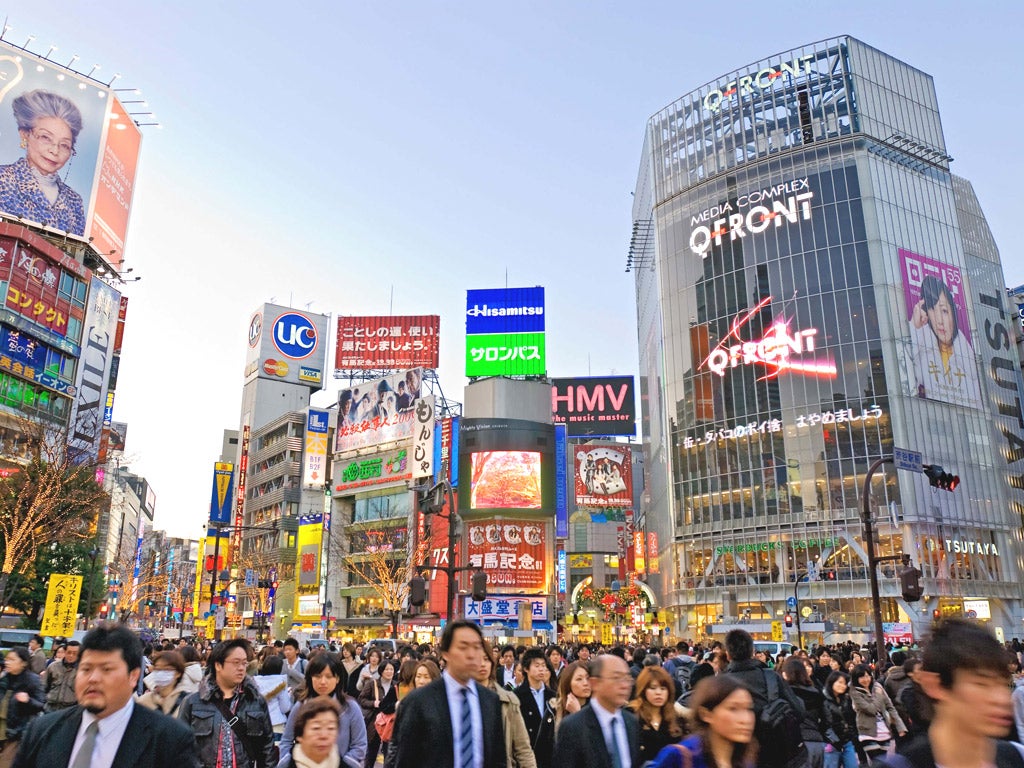Japan's population to fall by third in 50 years
Unprecedented threat to economy, healthcare and culture as numbers plummet by 41 million

Your support helps us to tell the story
From reproductive rights to climate change to Big Tech, The Independent is on the ground when the story is developing. Whether it's investigating the financials of Elon Musk's pro-Trump PAC or producing our latest documentary, 'The A Word', which shines a light on the American women fighting for reproductive rights, we know how important it is to parse out the facts from the messaging.
At such a critical moment in US history, we need reporters on the ground. Your donation allows us to keep sending journalists to speak to both sides of the story.
The Independent is trusted by Americans across the entire political spectrum. And unlike many other quality news outlets, we choose not to lock Americans out of our reporting and analysis with paywalls. We believe quality journalism should be available to everyone, paid for by those who can afford it.
Your support makes all the difference.Japan's government yesterday released stark new evidence that the nation is on the brink of a demographic crisis, forecasting that its population will shrink by 30 per cent in the next half-century, while soaring life expectancy will further burden the state.
Click here to see the 'Demographic timebomb - ageing Japan' graphic
The report estimates that by 2060 the number of people in the Asian powerhouse will have fallen from 128 million to about 87 million, of which almost 40 per cent will be 65 or older. The report by the National Institute of Population and Social Security Research warns that by 2110 the number of Japanese could plummet to 42.9 million – a third of the current population – "if things remain unchanged".
Japan's population began falling in 2004 and is ageing faster than any other on the planet. More than 22 per cent of Japanese are already 65 or older and women will have roughly 1.3 children, well below the population replacement rate. Experts have warned for years that the inverted population pyramid is a harbinger of economic and social disaster, but the institute's prediction is one of the grimmest yet.
The report will also have ramifications for other developed nations grappling with similar logistics of citizens having smaller families and living longer. "This is Japan's biggest problem," said Florian Coulmas, who heads the Tokyo-based German Institute for Japanese Studies. "It affects every aspect of the country's society, economy, culture and polity. Japan is ahead of the rest of the world. That requires adjustments that no other country has had to make in the absence of war, epidemics or famine. But Japanese politics is totally incompetent. The politicians haven't woken up to the fact that this is a national crisis."
Japan's low birthrate is not seriously out of kilter with the rest of the developed world, but the country is unusual among its economic competitors in shunning mass immigration – roughly 2 per cent of the population is classed as "foreign".
The shrinking and ageing population means the government will struggle to cope with ballooning social welfare costs, and to pay for Japan's enormous public debt – at $12 trillion, the worst in the industrialised world.
Yesterday's report predicts that Japanese women will live, on average, to 90.93 years in 2060, up from 86.39 years, and men will live to 84.19, up from 79.64. "The trend of the ageing society will continue and it is hard to expect the birth rate to rise significantly," said the government's spokesman, Osamu Fujimura.
The earthquake and tsunami last March and the costs of cleaning up after the Fukushima nuclear meltdown have added to the burdens on state coffers. The disasters – which killed more than 19,000 people – caused a short-term dip in average life expectancy in 2010.
Japan's leading business federation, Keidanren, has for years called for importing up to six million foreign workers. And a report in 2007 by a prominent group of conservative politicians said: "In order for Japan to survive, it must open its doors as an international state to the world and shift toward ... accepting immigrants."
In the meantime, millions of young Japanese are putting off marriage and childbirth until their thirties, forcing governments in some rural areas to set up matchmaking agencies.
Join our commenting forum
Join thought-provoking conversations, follow other Independent readers and see their replies
Comments